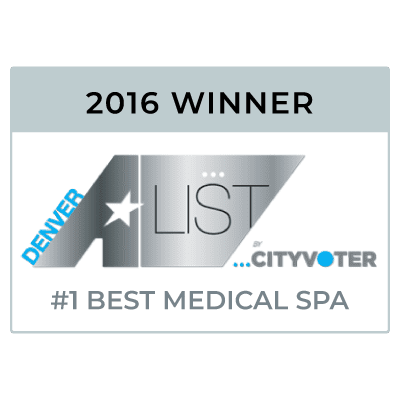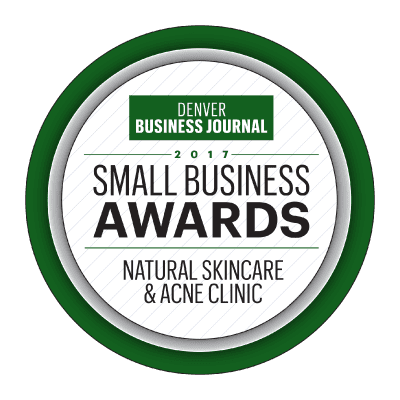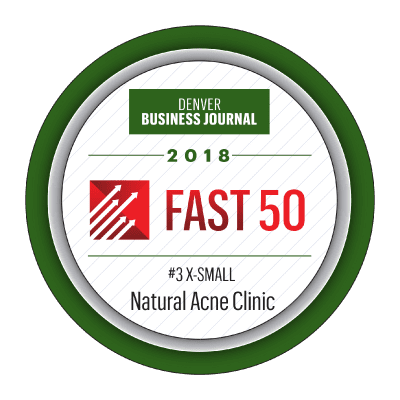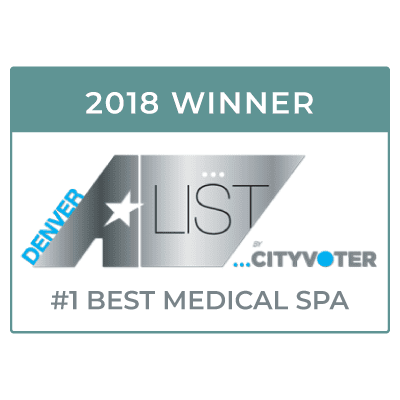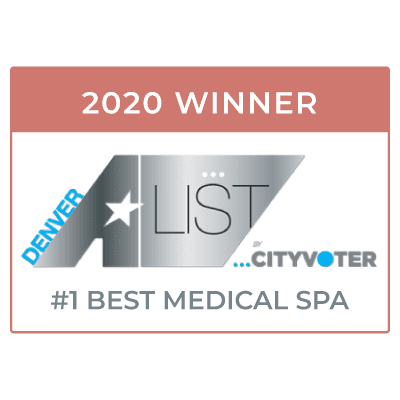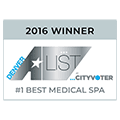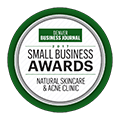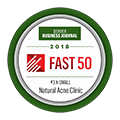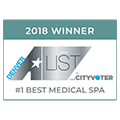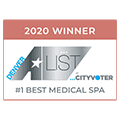Accutane.
If your guts twinge just reading this word, your instincts are right on track.
Accutane and its generic counterpart, isotretinoin, belong to a class of drug called retinoids (man-made vitamin A derivatives). Available only by prescription and under a dermatologist’s close scrutiny, it

works by decreasing oil (sebum) production. It should never be given to a patient, even if requested, as a first response to acne, no matter how severe. Instead, it’s used as a last resort drug—after all other topical and oral antibiotics and other prescriptions have failed.
Between, 1982 and 2009, 13 million people used Accutane to treat primarily severe cystic acne.
Unfortunately, many found out the dangers of Accutane the hard way
In fact, in 2009, Roche Holding AG, the original Swiss drugmaker, pulled Accutane from the U.S. market after juries awarded more than $33 million in damages to users who developed bowel disease―many of whom were forced to use colostomy bags the rest of their lives―related to taking the drug.
In fact, our team of Clear Skin Coaches frequently works with clients that have gut imbalances and bowel disease caused directly by prior Accutane use, from severe constipation to Crohn’s disease.
And yet, isotretinoin has been available since 2002 and is still offered by dermatologists to their patients to treat severe acne. While isotretinoin can help some people, the results don’t last, even after multiple rounds of 4 to 6 months each. Within half a year of completing their treatment, patients often begin breaking out again.
The most frightening aspect of Accutane are the side effects
Milder side effects of generic Accutane include:
- Dry skin, chapped mouth and lips, dry eyes, and dry nose and nose bleeds.
- Tiredness
- Slow healing of cuts and wounds.
Serious dangers of generic Accutane, though rare, include:
- Joint, bone, ligament and muscle problems ― including stunted long-bone growth in teens and
- permanent muscle damage.
- Increased pressure on the brain ― such as headache, dizziness, seizures or stroke.
- Vision problems ― like blurry vision and double vision.
- Rashes ― such as peeling skin, rashes on your limbs and face, and sores in your nose, throat, mouth and eyes.
- Allergic reactions ― hives, swelling in your mouth or throat, trouble breathing.
- Increased cholesterol ― especially if you have diabetes, drink alcohol, are obese or have metabolic syndrome.
- Jaundice
- Fainting
- Fast heart beat
- Hearing problems
- Organ damage ―liver, pancreas and esophagus. Side effects include diarrhea, bleeding from your rectum, severe pain in your stomach and chest, and heartburn.
- Low red or white blood cell counts.
- Mental health problems ― including depression, suicidal thoughts, sadness and crying spells, anger and irritation, withdrawal, lack of focus, guilt, sleep issues and more.
WHAT GIVES?
Why would a dermatologist ever prescribe generic Accutane, especially to growing teens?
The central issue is twofold.
First, many or even most doctors are conditioned to think in terms of drug remedies. They want a “fast” treatment protocol to get fast results for their patients. Which goes hand-in-hand with American patients’ rapidly increasing demand for prescriptions to solve their problems.

According to Consumer Reports, “An estimated $200 billion per year is spent in the U.S. on the unnecessary and improper use of medication, for the drugs themselves and related medical costs.” Furthermore, “Almost 1.3 million people went to U.S. emergency rooms due to adverse drug effects in 2014, and about 124,000 died from those events.”
When it comes to acne, there’s absolutely NO need to endanger your skin or health with toxic products or meds to achieve clear skin. So instead of wondering “Is Accutane safe?”, seek out safe, natural sources of Vitamin A for acne that are powerful WITHOUT the harmful side effects. You just need to know what to look for, such as such as Clove Hill Skin Clarity, which uses Beta Carotene.
The second issue is this.
Dermatologists simply do not have the time it requires to get to know each of their patients as a unique individual with a singular acne history and lifestyle, let alone create a customized-per-patient course of treatment to clear their acne. While they mean well, the amount of time allotted to each of their patients simply doesn’t allow for a personalized approach to care.
However, a personalized “whole person” acne treatment plan is the ONLY thing that can clear your acne for good.
Based on what me and my team of Clear Skin Coaches have learned and experienced from helping thousands of clients do this very thing, here are five of our TOP best practices for achieving clear skin the safe and natural way―no matter who you pick to help you get rid of your acne.
Yes, there are more best practices, but these five provide a strong foundation for a safe, confident start.
5 Best Practices to Clear Your Acne for Good
1. Acne Specific Health Questionnaire
For sure, you’ve probably filled out lots of health questionnaires in your time. However, raise your expectations when it comes to treating your acne.
Specifically, look for (actually, insist upon!) a questionnaire that asks about your detailed acne history, level and types of stress in your life, the exact supplements and vitamins you take, the exact topical skincare and acne care products you use (including how often), any and all prescriptions you use and when. The questionnaire should also ask about your diet and use of probiotics, your use of birth control and typical menstruation experience.
Why are these topics so important? Because they help identify your individual acne triggers so you can build an effective plan to clear your skin.
2. Deep Dive Discussion
Once you’ve completed a comprehensive, acne-focused questionnaire, you should have the opportunity to speak with a certified skincare expert. And not for just 5 or 10 minutes! Instead, to truly unearth what’s triggering your acne, a qualified expert should insist on spending a full hour with you―to properly understand your acne history and how your diet and lifestyle choices impact your acne.
Plus, they should explain exactly what acne is and your risk for genetic pre-disposition to acne. In addition, they should―based on your health questionnaire and discussion―help you identify your exact acne triggers and how to avoid them so you can begin your clear skin journey.
3. Personalized Acne Treatment Plan
Here’s the crucial decision point that can keep you stuck trying one product after another, ad infinitum, or on the path to lasting clear skin. It’s time to decide between the myth of a single silver bullet acne product or med, or awakening to a new idea:
Clearing your skin for good requires a multi-faceted system PERSONALIZED for you.
A comprehensive approach that considers your diet and lifestyle, and which fires up
and maintains your body’s natural, powerful ability to heal and eliminate breakouts.
Know this: If the single product method worked, you wouldn’t be reading this article.
Instead, wrap your imagination around a comprehensive acne treatment plan that’s personalized and perfect for YOU. Singular, unique you! A plan that equips you to defend against your exact cocktail of TRIGGERS and, step-by-step, move you to clear skin certainty. Only then, will you finally solve your acne struggle.
4. Dedicated Expert Acne Specialist
Did you know? Once you begin to clear your acne, it still takes 90 days to eliminate acne that had already been forming. And because waiting out this natural clearing process can be daunting, having an expert skincare specialist guiding your every step can be a lifesaver.
Otherwise, what happens when you have questions? When you get nervous? When you breakout―is it normal or not? And how do you choose just-right-for-you acne clearing products from the bajillions available, so you stop wasting time, money and energy trying to figure it out on your own?
The right Skincare Specialist makes all of this easy for you. From zeroing in on your exact acne triggers and pinpointing skincare products and supplements that will promote the fastest and safest healing, to curating personalized regimens and helping you select lifestyle changes that best promote clear skin (and a happier life!)―they do it all.
Bonus points if they do all the ordering for you, so you just have to grab the box of goodies that lands on your doorstep and go. What could be nicer?
5. Post-Clearing Maintenance
Congrats! You’ve done the work and achieved clear skin. Now how do you keep it smooth and glowing?
The most important thing for you to know at this point of your journey is this.
Unless you STICK to a personalized maintenance plan, reverting back to your old skincare habits, diet and lifestyle can risk a major relapse. And lead you right back to a painfully blemished complexion.
That’s why, when considering your acne care options, make sure the guide or treatment you select has a proven follow-up system that’s adaptable for your complexion and lifestyle. Because the last thing you want is to jeopardize the beautiful skin you’ve finally achieved.
Bottom Line?
Never risk compromising your health with a proven toxic acne product like Accutane. The dangers are real and significant. Why take a chance?
Instead, wield your power to eliminate your breakouts and achieve clear skin the natural way―and stay safe and healthy while you do it.
Remember, to get started on your path to lasting clear skin, insist on ALL five of these best practices in your acne treatment system. They can make all the difference between suffering with never-ending breakouts or facing life with the sweet, supple skin you dream of.
Ready to clear you skin for good?
Turn to Natural Acne Clinic!
Me and my team of Clear Skin Coaches have helped thousands of women and men around the world―people just like you―get clear with a personalized Online Acne Program that’s safe, natural and effective. And yes! We incorporate all five of these Best Practices into our system so you feel supported and excited every step of the way to your gorgeous skin.
It’s easy to start! Simply book your Skin Analysis & Personalized Solution (which takes care of Best Practices 1 through 3!) and you’re on your way.
References
https://www.consumerreports.org/prescription-drugs/too-many-meds-americas-love-affair-with-prescription-medication/
